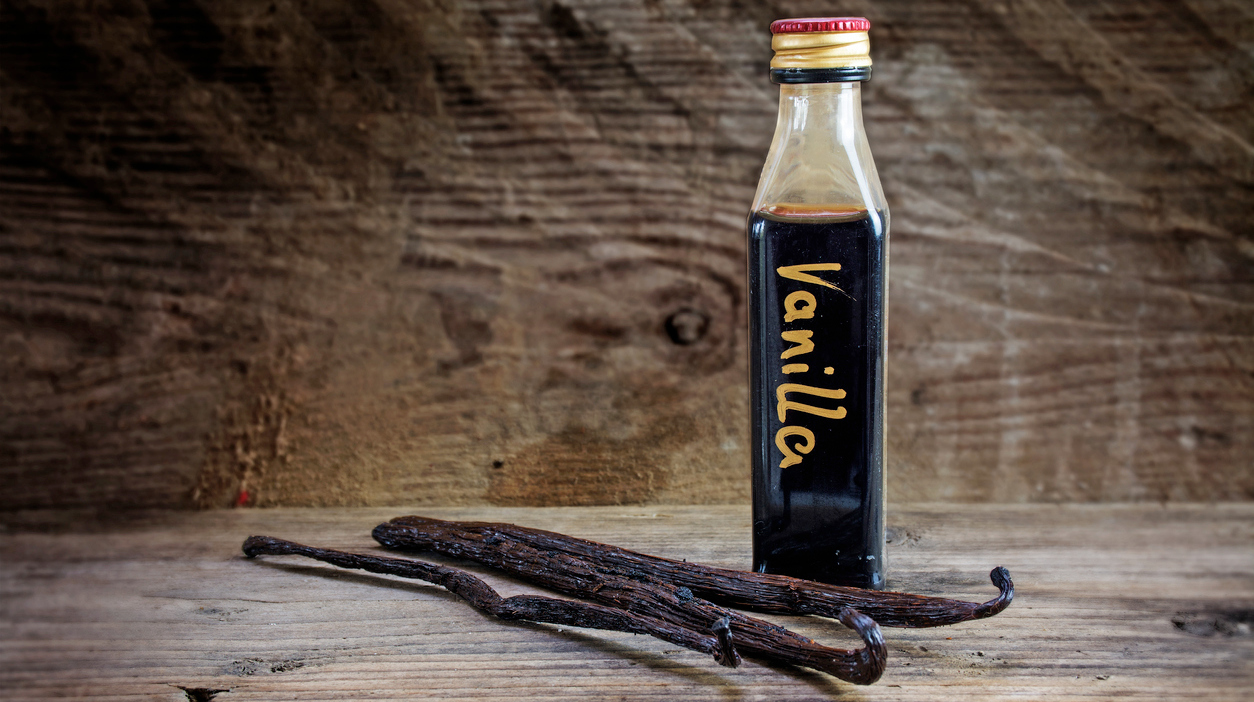TIL You Can Get Plastered On Vanilla Extract
A Connecticut woman was arrested last week and charged with driving under the influence of vanilla extract. And that's how I learned you can get schnockered by gulping down bottles of the stuff that makes cake smell so good.
First, the story. Per The Hour, a call to police at 4:45 p.m. reported a car stopped in an intersection, the driver "sitting behind the wheel with her eyes closed." Officers smelled vanilla on her breath and several bottles of pure vanilla extract were found in the car. The driver failed sobriety tests, refused to take a blood alcohol test, and was taken into custody.
How did I not realize that getting drunk off vanilla extract was possible? In The Takeout's morning staff meeting, not a one of us knew that. And another question, a more interesting one (because the answer to the first is "I don't know, I guess I never read the bottle"), is this: How can vanilla extract be sold in the baking aisle in grocery stores, and why don't I get carded when I buy it?
Enter Bon Appétit, which looked into this very question when another driver drunk on vanilla extract was arrested in 2015. It's a lot more complicated than I could easily summarize, but the short answer is this: It's definitely alcohol, but it's real gross, and companies are financially incentivized to make sure they stay real gross.
According to the piece, most vanilla extracts (including imitation extracts) clock in at somewhere between 35 and 40 percent alcohol—so similar to vodka, rum, and tequila. The process of making extract requires booze, and the law also requires alcohol to be present in the extract, because vanilla extract is "the only flavoring deemed important enough for the federal government to officially define standards for." The Flavors And Extracts Manufacturers Association (their acronym is FEMA, incidentally) lobbied hard in the years before Prohibition for extracts to be excluded from the ban, arguing that it would hurt the food industry. It worked:
By the time the Volstead Act went into effect the following year, it included a clause that made an exemption for flavor extracts—as long as they were deemed non-potable and a reasonable person wouldn't want to drink them straight.
The non-potable thing is still in effect. The TTB (Alcohol And Tobacco Tax And Trade Bureau) taxes alcohol used in liquor at a much greater rate than alcohol used in extracts (thanks to a refund), so it's in the best interest of vanilla extract manufacturers to keep that non-potable (gross) classification.
Lots more detail in the original BA piece, which we encourage you to read, but in short: Yes, you can get drunk on vanilla extract, but you probably won't enjoy it. Then again, people also like Malört.
